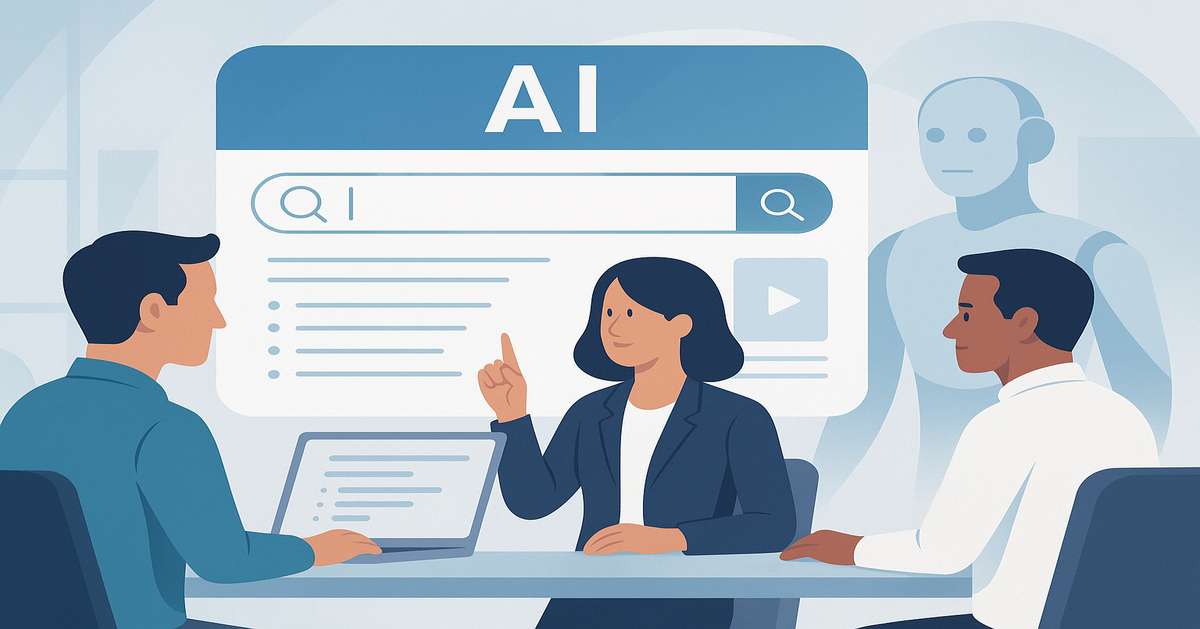Introduction
Have you noticed how search results are starting to feel less like a list of links and more like a conversation? We’re entering a new phase where AI doesn’t just help us search it guides decisions, predicts needs, and shapes the entire customer journey.
2026 is shaping up to be the year where search behavior, brand discovery, and customer expectations shift dramatically. Businesses that understand how AI is reshaping this journey will stay visible, relevant, and trusted while others fade quietly.
This article breaks down the seven core focus areas every business, marketer, and SEO professional should understand right now.
1. How Is AI Changing the Way Customers Start Their Search?
People no longer always start their search on Google. They ask AI assistants, chatbots, voice search devices, and personalized recommendation systems.
Search is shifting from keywords to intent and dialogue.
But here’s the key:
AI tools filter choices faster by learning user context, preferences, and past behavior.
This means:
- If your brand lacks trust signals online → you may never be recommended.
- If your content doesn’t answer conversational queries → you may never appear.
Focus: Build helpful, people-first content and create brand presence across multiple discovery points.
2. Why Does AI-Driven Content Need Personality? (Content Personalization + Brand Voice)
AI is everywhere now which also means generic content is everywhere.
Users want authenticity, perspective, and real human tone.
As strategist Linda Marsh puts it:
“AI can create clarity, but only people can create connection.”
Brands must now blend AI efficiency + Human identity to stand out.
Where to apply this:
- Website & blog content
- Video scripts
- Product education workflows
- Social storytelling
Tip: Discuss real experiences, failures, wins emotion builds trust.
3. How Will Search Rankings Change With AI Answer Systems? (AI Results, Zero-Click Search)
AI search systems like Search Generative Experience (SGE) are reducing clicks to websites.
People get answers directly on the search screen.
To remain visible:
- Structure content so it can be summarized cleanly by AI.
- Use clear headings, FAQ blocks, step-by-step guides.
- Add schema markup wherever possible.
Brands must optimize not just for ranking, but for being referenced in AI-generated answers.
4. Why First-Party Data Will Become Your Biggest Advantage
With cookies disappearing and privacy rules rising, the strongest customer insights will come from your own audience interactions, such as:
- Website analytics
- Email engagement
- CRM history
- Product usage insights
AI uses this data to predict buying patterns and deliver personalized recommendations.
Businesses that don’t build first-party data pipelines will lose visibility in personalized search environments.
5. How Will AI Shape Product & Brand Comparisons? (Decision Assistance & Trust Layer)
Before purchasing, customers now ask AI:
- “Which is the best laptop for graphic design?”
- “Show me alternatives to XYZ product.”
AI compares:
- Price vs Value
- Reviews vs Trust
- Credibility vs Brand story
This means your brand reputation must be extremely clean and transparent.
Focus on:
- Verified reviews
- Case studies
- Real customer stories
These are the signals AI trusts most.
6. What New Skills Will Marketers Need in 2026?
Marketing teams now shift from just creating content to:
- Training AI workflows
- Managing structured data
- Layering brand voice over AI outputs
- Reading journey intent signals
The best marketers in 2026 will be:
Part strategist + part storyteller + part technologist.
7. How Should Businesses Redesign Their Customer Journey Experience?
The journey should feel:
- Faster
- Personalized
- Frictionless
Examples:
- Chat-based product discovery
- AI-guided support flows
- Dynamic website content based on repeat visits
Consistent micro-experiences lead to macro trust.
FAQs
1. Will AI replace SEO completely?
No SEO evolves. Human-led strategy + AI optimization wins.
2. How does AI change keyword research?
Focus shifts to topic clusters, intent phrases, and conversational context.
3. How do small businesses adapt to AI search changes?
Start with trust-building content, local signals, and first-party data collection.
4. Will websites lose traffic because of AI answers?
Only if they rely on thin or generic content. Depth and originality still win.
5. What’s the first step to prepare for 2026?
Audit your content for helpfulness, clarity, trust, and structure.
Conclusion
AI isn’t here to replace search it’s reshaping it into a personal decision-making companion.
Brands that adapt early will guide the journey.
Brands that ignore it will no longer be part of the conversation.
If you found this helpful, share your thoughts or ask a question below I’d love to discuss.
